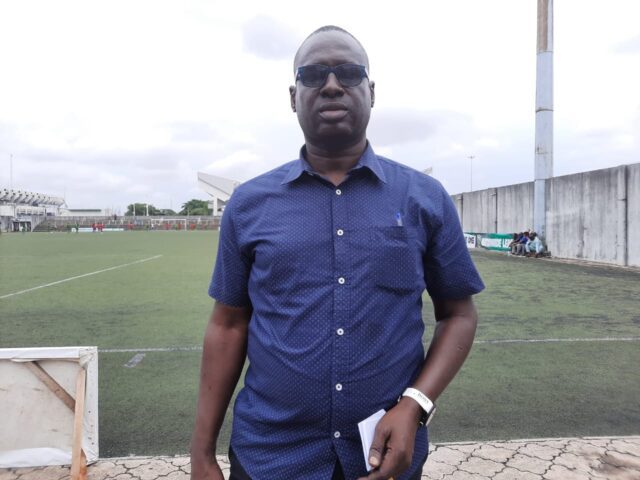In an interview with Sports 247, Shola Ogunnowo, the Chief Operating Officer of the Nationwide League One (NLO), shared valuable insights ahead of the highly anticipated NLO2 tournament.
Shola expressed his expectations for the tournament, stating, “We aim to showcase the right age group playing in the youth league. The NLO2 is specifically designed for players aged 19 and below, born from 2004 onwards. The screening process was meticulous, involving thorough physical checks and the submission of government-approved identification documents. We are satisfied with the players’ data received so far, ensuring that they meet the age requirements to compete in the U19 tournament. Our hope is to unveil the youthful talents in Nigerian football, allowing national team coaches to scout potential players for future assignments at the underaged level.”
However, Shola also noted that several players were disqualified due to eligibility issues, highlighting that some clubs had as many as 10 to 15 players disqualified from their registration. The NLO allowed clubs to register between 30 to 35 players, resulting in a few teams facing the setback of having a portion of their players ruled out.
Expanding on the objectives of the NLO2, Shola expressed the desire to see players perform beyond their previous levels. With dedicated scouts present at the tournament, the NLO aims to select standout players to be submitted to the Nigeria Football Federation (NFF) and registered on the global scout database. Mr. Shola emphasized that the goal is not limited to local play, as the matches are being broadcast live, extending the exposure of players beyond the national stadium in Lagos.
Regarding grassroots football development, Shola acknowledged that while progress has been made, there is still work to be done. As a developing nation, Nigeria’s football scene continues to evolve, with increased emphasis on grassroots football by the NFF. State football associations have been instructed to concentrate on nurturing youth players at the grassroots level to cultivate a larger talent pool beneficial to Nigeria as a whole.
He pointed out the substantial growth in the number of teams participating in the NLO over the past decade.
With around 80 clubs involved in previous editions of NLO1, the current tournament has attracted over 350 to 400 clubs at the amateur level.
This development demonstrates rapid progress, and Shola expressed hope for continued growth as more individuals become interested and invested in grassroots football.
Regarding the planning and execution of the NLO2, He praised the smooth take-off and punctuality of matches. He mentioned that the league has successfully commenced in Kano as well, with multiple matches scheduled across the country.
In a motivational message to coaches and club managers involved in developing young footballers, Shola stressed the importance of focusing on players at a youthful age. By nurturing talent from an early stage, coaches have a higher chance of being recognized when their players shine on the national and international stage.
Shola cited the examples of successful young players like Osimhen and Iheanacho, who were picked by international clubs at a tender age and have excelled. He urged coaches to prioritize the development of young players, as they hold the potential to elevate both the players’ careers and the reputation of their mentors.
In conclusion, Shola conveyed high hopes for the NLO2 tournament, emphasizing the positive impact it can have on Nigerian football. He expressed confidence that, in the next two to three years, the youth league would yield significant results, contributing to a larger pool of youthful players representing Nigeria at the international level.









